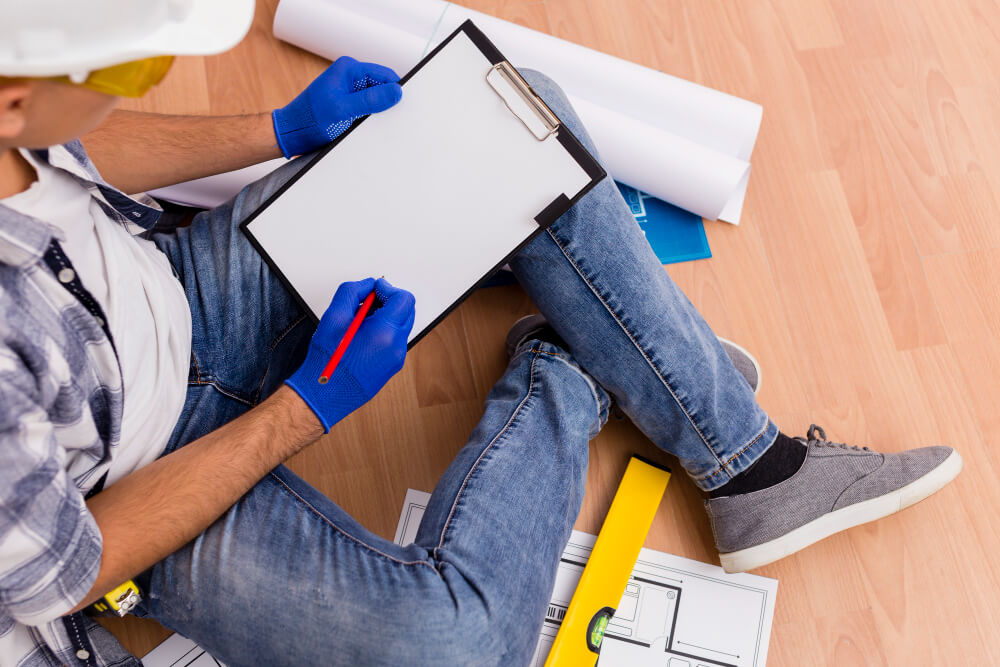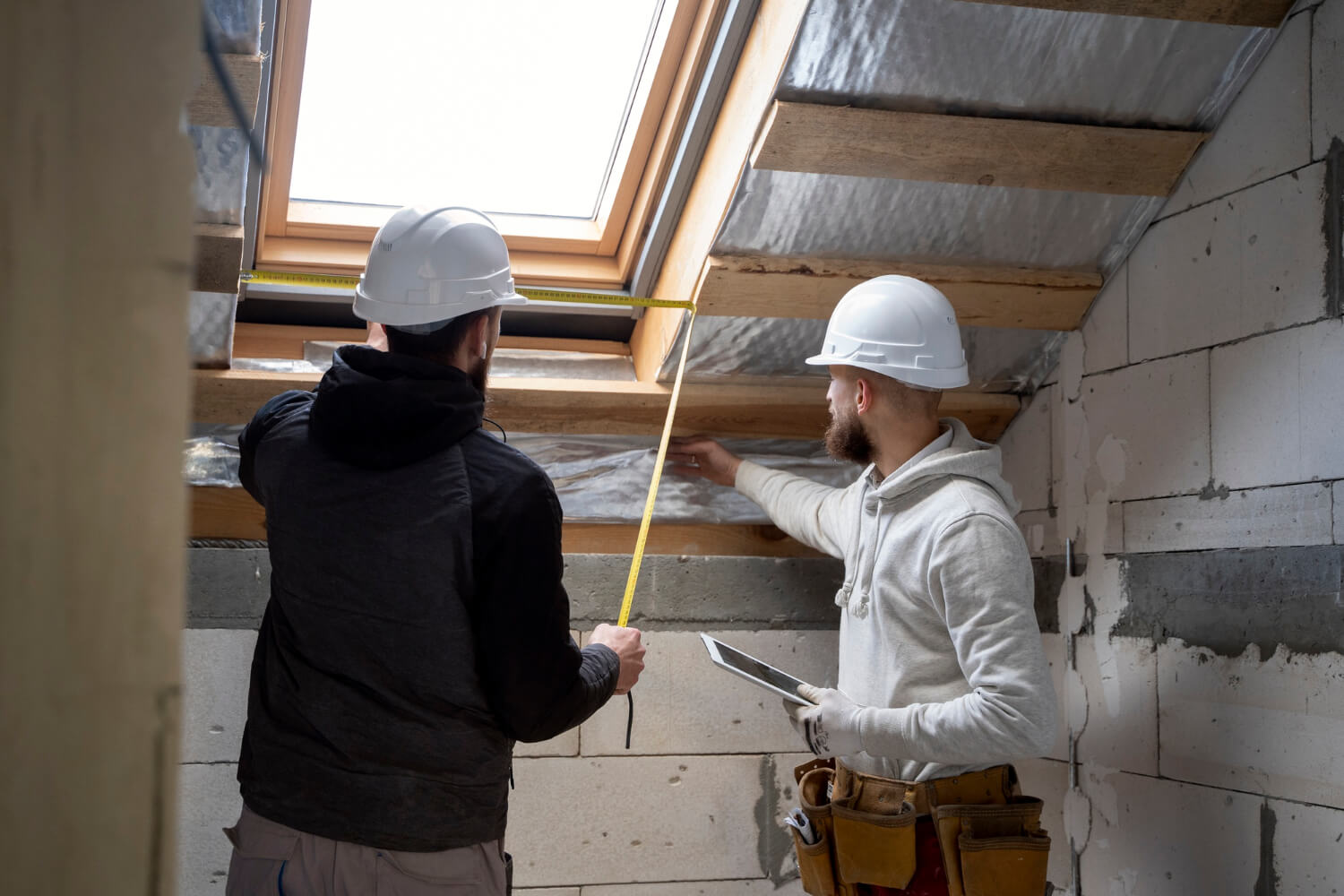Blog Guides Lending and mortgage
Why does my insurance company want to inspect my house, now?
Updated Thu, Jul 24, 2025 - 6 min read
Top blog articles
Have you recently received a call from your homeowners insurance company saying they want to inspect your house? And, you’re left wondering, “Why does my insurance company want to inspect my house”? Don’t worry — it’s a common part of the insurance process.
What is a home insurance inspection?
An insurance inspection is a routine process to assess your home. It could be as simple as your insurance agent or a qualified inspector driving by to check the exterior or conducting a more detailed visit. Inspections typically take 30 minutes to four hours and often occur a few weeks after your policy starts.
A home insurance inspection is different from a full home inspection that’s done at the time of buying a home. While a home inspection helps potential homebuyers evaluate a property for safety and structural issues before deciding to buy it, a home insurance inspection is generally not as extensive and is completed on a case-by-case basis.
Why does my insurance company want to inspect my house?

The two most common reasons for a home insurance inspection are to appraise your home’s replacement cost (the labor costs and the materials costs to rebuild a house) and to address any risks your property has.
When your insurance company wants to inspect your home, it’s usually to ensure your property is safe and at the right property valuation. They want to confirm your insurance coverage or dwelling coverage aligns with the condition of your house. For example, if you own an older home, they might want to check for potential issues, like outdated electrical systems or an aging HVAC system.
These factors determine the price of your insurance premiums and the analysis of your property’s overall condition. Skipping an inspection could mean your insurance coverage doesn’t fully protect you in case of a disaster.
How does it affect my insurance?
The inspection helps your homeowners insurance company decide if adjustments to your policy are needed. For example:
- If the inspection reveals risks, like faulty wiring or a damaged roof, they might require repairs to maintain your policy.
- If your home is in great shape, you might qualify for discounts on your insurance premium.
When is the home insurance inspection required?
While home insurance inspections may not be absolutely essential, most companies require them, at the insurer’s discretion. The situations that make an insurance inspection a necessity are if you:
- Live in an older home
- Are switching insurance companies
- Haven’t had a home insurance inspection in a decade
Do you have time to prepare for a home insurance inspection?
Like with all processes, preparation for the inspection is key. The last thing you want is to be caught off guard and have your insurance canceled. Therefore, it’s important that you prep in advance, formulate a home inspection checklist, follow a home maintenance schedule, and be ready for the inspector’s visit.
Keep in mind that the insurance inspector may or may not give you sufficient notice before arriving for the procedure. And, may also take photographs of the problem area as proof. You cannot afford to not cooperate with the inspector or else the insurance company will cancel your homeowners’ insurance policy or not renew it at all.
How can you prepare for a home insurance inspection?

Always use your common sense and see your property from an inspector’s perspective. To do this, take a walk around your house and watch out for potential shortcomings, dangers, and liabilities. You need to repair the problematic areas and check them off from your home insurance inspection checklist.
Here’s how to be proactive and highlight your home’s strengths:
- Check your basement for cracks in the home foundation, signs of mold and mildew, or water damage.
- Inspect the attic for water damage, insect infestation, and rodents.
- Scan your roof for damage, debris, or missing roof shingles.
- Examine the chimney for cracks, damage, or missing bricks. And, rain gutters for dirt and maintenance issues.
- Check all doors and windows for any problem with the locking mechanism or damage.
- Examine all walls and ceilings for cracks, stains, or water damage.
- Check whole-house systems for plumbing, electrical, and HVAC problems. Clear away clutter around your electrical systems and HVAC system for easier access.
- Test your smoke detectors and carbon monoxide detectors. Replace batteries if needed.
- Check for visible issues such as leaks, peeling paint, or broken steps.
What does a home insurance inspector look for?
Insurance companies typically follow a home insurance inspection checklist for interior and exterior inspection to assess your home. Remember that a well-maintained home reduces the risk of problems such as fire hazards or water damage.
Here’s what they’ll focus on:
- Exterior inspection
The inspector will examine the roof, siding, foundation, and landscaping. They’ll look for issues like overhanging trees, cracked foundations, or missing shingles that could lead to future claims. - Interior inspection
Inside your home, they’ll check key systems like plumbing, electrical wiring, and heating. Also, if there is any inefficient ventilation system. And, look for any insect or rodent infestation and any signs of mold and mildew. - Safety features and home security systems
They’ll also check smoke detectors, carbon monoxide detectors, fire extinguishers, and security measures.
Basically, the insurance companies inspect your home for potential red flags that might be responsible for you filing a claim or increasing the chance of an injury on your property.
Key takeaway
A homeowners insurance inspection is not something to stress about. It’s just your insurance company’s way of making sure you’re properly protected. And, the inspection helps the insurer ensure that the insurance coverage is sufficient and correct.
FAQs
Who conducts the inspection?
A home insurance inspector or sometimes an independent contractor hired by your insurance agent will handle the job. The home inspector is highly-skilled professional who is trained to detect even the slightest flaws and dangers despite the short inspection procedure. Moreover, they use different factors for the assessment of the insured property. It could be the size of your house, its location, and the age of the house.
What is the cost of a home inspection?
The average cost of a home inspection can be anywhere between $300 and $500. However, this rough estimate depends on factors such as the age and condition of the house, its size, and its location.
How often do insurance companies conduct inspections?
A home inspection for insurance usually takes place 30 to 90 days following the policy’s commencement date. An interior examination, an exterior inspection, or both may be necessary for your home. Your homeowners’ insurance premium may go up or down following the house inspection.
What happens after a home insurance inspection?
The inspector prepares a detailed report, complete with pictures, to assess your property’s condition. The inspection report is sent to your insurance company to decide if you pass. Passing means your policy stays or improves. If you fail, you can request the report, fix the issues, and try again.
Read more: Why disability insurance matters?









